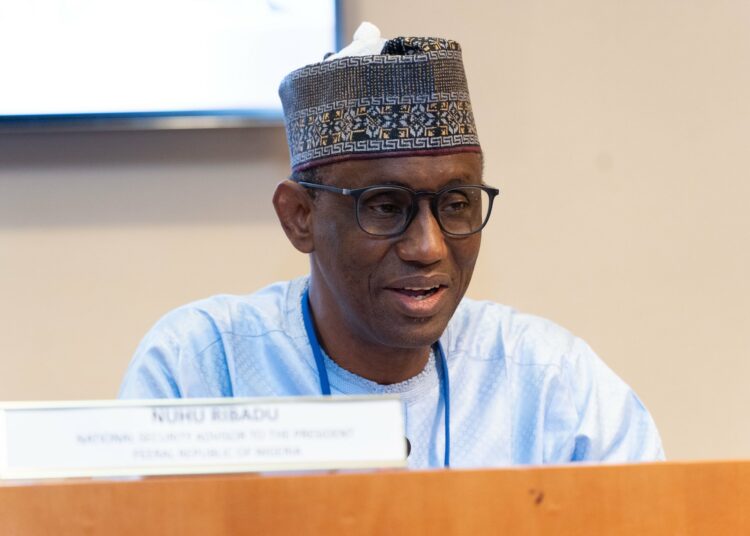National Security Adviser (NSA), Malam Nuhu Ribadu, has directed that forfeited arms must be securely managed to prevent them from re-entering illegal circulation and posing a national security challenge.
Ribadu stated this at a one-day workshop on “Forfeiture/Handling of Small Arms and Light Weapons by Courts After Judgement for Prosecutors of Firearms Cases and Other Stakeholders” yesterday in Abuja.
The event was themed: “Strengthening procedural approaches for the forfeiture and safe disposal of arms and light weapons.”
Ribadu, who was represented by the director, Law Enforcement and Liaison, AIG Rex Dundun, said once arms were seized and designated as forfeited, the assurance that those weapons were properly managed was a priority.
He commended the efforts of NCCSALW towards addressing the proliferation of small arms and light weapons in Nigeria as well as its commitment to the safety and security of the nation.
Ribadu said the workshop would help to address an increasingly complex dimension of the nation’s national security framework.
“This gathering today serves as both a call to action and an opportunity to reinforce our commitment to safeguarding Nigeria’s security landscape.
“The National Centre’s proactive initiatives in curbing arms proliferation underscore Nigeria’s dedication to reinforcing our internal security architecture.
“This retreat is a timely intervention, addressing not just a procedural aspect of arms management but a strategic element that impacts our ability to control illicit arms flow effectively.
“Forfeited arms represent a significant national security challenge; once they are seized and designated as forfeited, the assurance that these weapons are securely managed and do not re-enter illegal circulation becomes a priority,” he said.
Earlier, the director-general of NCCSALW, DIG Johnson Kokumo (rtd), said the retreat would serve as an essential platform to discuss and strategize on the complex and evolving legal landscape surrounding the forfeiture and handling of small arms and light weapons by the courts after judgement.
Kokumo said the retreat became necessary, especially as the centre had been fully empowered to address the complexities of small arms and light weapons management in Nigeria and beyond as contained in the recently assented National Centre Act, 2024.
He said the courts play a crucial role in the legal process surrounding small arms and light weapons, adding that a standard and unified protocol for handling forfeited weapons had remained a gap in the national approach.
According to him, forfeited arms post-judgment are typically handed over to the prosecuting agency – either the Nigeria Police Force or DSS depending on who prosecuted the case, leading to potential inconsistencies in the handling process.
“As a result of these gaps and inconsistencies there is the likelihood that these forfeited arms could fall into the wrong hands.
“This retreat, therefore, provides a platform to review these practices, aiming to establish a clear and standardised approach that prevents forfeited weapons from inadvertently falling back into the wrong hands.
“Today, we seek to define the roles and responsibilities of the National Centre alongside all stakeholders in managing and retrieving these arms after court judgments,” he said.
The guest speaker, Simon Lough, a Deputy Commissioner of Police and Senior Advocate of Nigeria (SAN), said the issue of proliferation of small arms and light weapons had been a serious concern, not only to Nigeria, but the entire West Africa.











